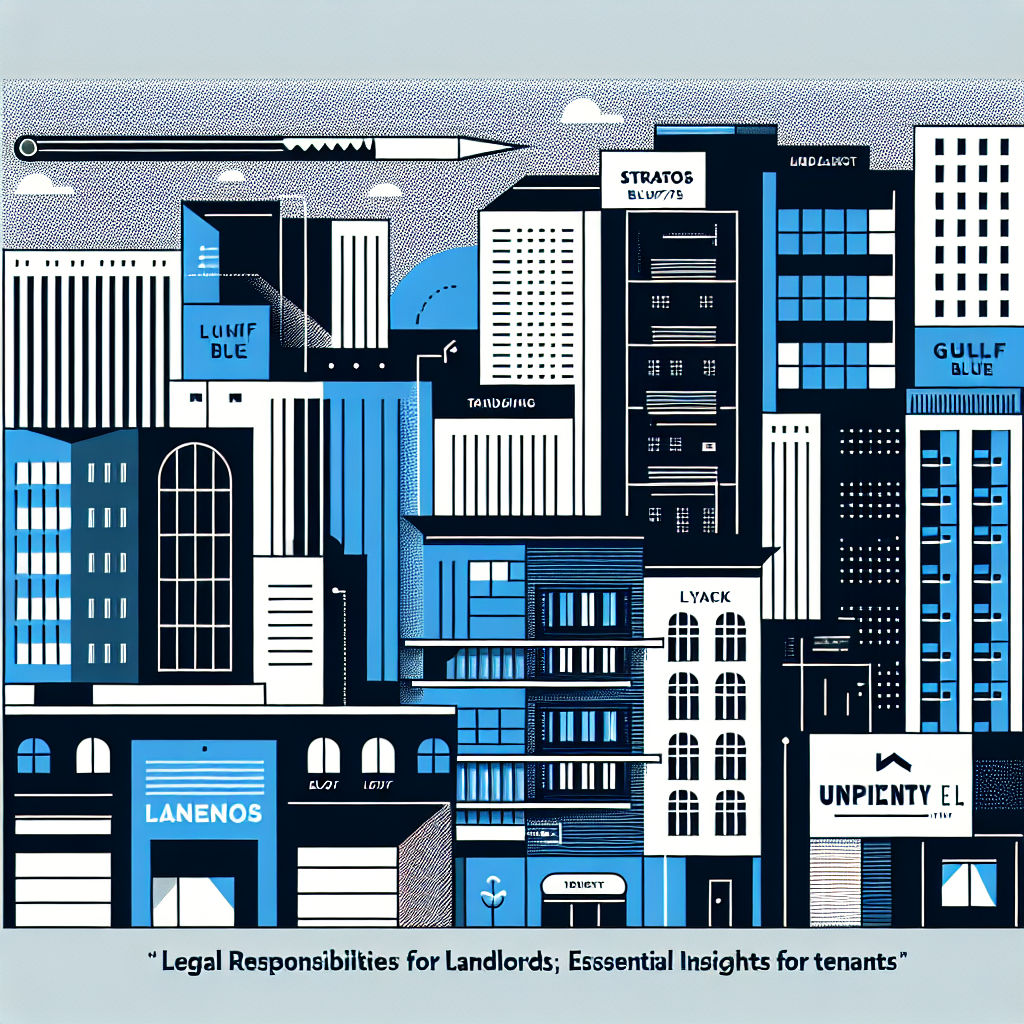Understanding the Legal Responsibilities of Landlords: A Comprehensive Guide
In today's property management landscape, the legal responsibilities of landlords are paramount to ensuring both compliance and tenant satisfaction. Whether you're a seasoned property investor or a first-time landlord, understanding your legal obligations can not only protect your investment but also foster a positive landlord-tenant relationship. At Unify LIV, we recognize the complexities involved in managing rental properties and aim to provide you with valuable insights into the legal responsibilities of landlords.
What Are the Legal Responsibilities of Landlords?
The legal responsibilities of landlords encompass a variety of duties that stem from local, state, and federal laws. As a landlord, you have a duty to maintain your rental property, respect tenants' rights, and abide by housing regulations. This section will cover the most crucial responsibilities that every landlord needs to be aware of.
1. Habitability Standards
One of the fundamental legal responsibilities of landlords is ensuring the rental property meets habitability standards. This means that the property must be safe, clean, and suitable for tenants to live in. Key components of habitability include:
- Structural Integrity: The property should be free from serious flaws that could endanger tenants.
- Utilities: Essential services like heating, water, and electricity must be consistently available.
- Safety Features: Properties should have smoke detectors, carbon monoxide detectors, and proper exits in case of emergencies.
Failing to meet these standards can lead to legal repercussions, including the potential for lawsuits from tenants.
2. Maintenance and Repairs
Another critical aspect of the legal responsibilities of landlords involves maintenance and repair obligations. It is the landlord’s duty to address repairs in a timely manner. This includes:
- Routine Maintenance: Ensuring that the property is regularly inspected and maintained to prevent larger issues.
- Emergency Repairs: Attending to urgent matters, such as plumbing leaks or HVAC failures, quickly to prevent tenant harm or property damage.
Many landlords utilize property tech tools to manage maintenance requests efficiently. Unify LIV offers features designed to streamline this process, enabling landlords to handle tenant requests effectively while maintaining compliance with their responsibilities.
3. Providing a Safe Environment
Landlords must take reasonable steps to provide a safe and secure environment for tenants. This includes:
- Crime Prevention: Implementing measures like adequate lighting in common areas, secure locks on doors and windows, and potential surveillance systems.
- Compliance with Local Laws: Staying informed about and adhering to local ordinances regarding safety features and security.
Understanding the legal responsibilities of landlords in regard to tenant safety not only reduces liability but also enhances tenant satisfaction and retention.
4. Tenant Rights and Fair Housing
The legal responsibilities of landlords extend to respecting the rights of tenants. The Fair Housing Act prohibits discrimination based on race, color, religion, sex, national origin, familial status, or disability. Therefore, landlords must:
- Follow Fair Housing Regulations: Ensure that all marketing, leasing, and tenant selection processes are free from discrimination.
- Provide Notice Before Entering a Unit: Landlords must provide reasonable advance notice before entering a tenant’s home, typically 24 hours, except in emergencies.
Being mindful of tenant rights promotes trust and cooperation, and using property tech solutions from Unify LIV can assist landlords in ensuring compliance through automated notifications and documentation.
5. Security Deposits
Managing security deposits is another vital responsibility for landlords. The legal responsibilities of landlords concerning security deposits typically include:
- State Laws: Complying with specific regulations regarding the amount charged, the handling of the deposit, and the timeframe for returning the deposit after a tenant vacates.
- Documentation: Keeping accurate records of the deposit and any deductions made for damages or unpaid rent.
Landlords should utilize digital solutions for tracking deposits, expenses, and tenant communications. This not only aids in maintaining transparency but ensures adherence to legal obligations.
Why Understanding the Legal Responsibilities of Landlords is Crucial
Beneath the surface of managing rental properties lies a realm of legal obligations that can significantly impact your success as a landlord. Understanding the legal responsibilities of landlords can:
- Prevent Legal Issues: By being well-versed in your obligations, you can avoid costly legal battles and penalties.
- Enhance Tenant Relationships: A clear understanding of both your responsibilities and your tenants' rights fosters a positive rental experience.
- Boost Productivity: Utilizing property tech solutions can alleviate the burden of legal compliance, allowing you to focus on property enhancements and tenant engagement.
Implementing Technology to Manage Legal Responsibilities of Landlords
As we embrace the digital age, technology plays an integral role in helping landlords meet their legal responsibilities. From handling maintenance requests to managing lease agreements, tenant management software can streamline operations and improve compliance.
Unify LIV offers comprehensive property management solutions that automate notification systems, track maintenance requests, and assist with documentation, ensuring you can focus on what matters most—your tenants and your properties.
Conclusion of the First Half
Understanding the legal responsibilities of landlords can seem daunting, but it is essential for the successful management of rental properties. By adhering to habitability standards, ensuring maintenance, respecting tenant rights, managing deposits, and leveraging technology, you can create a compliant, efficient, and enjoyable experience for both you and your tenants.
Curious about how technology can simplify meeting your legal responsibilities as a landlord? Book a demo of Unify LIV today to explore our features and see how our platform can support you in managing your rental properties effectively. Stay tuned for the second half of this guide, where we will delve deeper into specific legal responsibilities and share tips for better compliance and tenant management.
